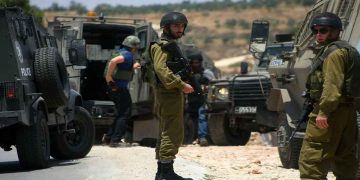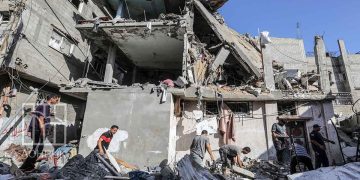On Wednesday, Jordan’s State Security Court issued a series of harsh sentences in what were described as “security” cases. These included the so-called “missile manufacturing, recruitment and training” case, and the widely followed “drones case,” which gained public attention after the security services broadcast video confessions attributed to several defendants.
According to the Jordan News Agency (Petra), the court found four defendants in the drone case not guilty and ordered their immediate release, citing the absence of any evidence linking them to illegal activity related to the development or use of unmanned aircraft.
Conversely, six defendants were sentenced to three years and four months of hard labour in the recruitment and training cases. They were convicted of attempting to recruit individuals and provide them with training in violation of the law.
In the missile manufacturing case, the court imposed sentences of up to 15 years of hard labour after convicting several individuals of unlawfully producing and storing rocket components for illicit purposes.
The acquittal of all defendants in the drone case, despite their video confessions being previously aired by official media, raises serious questions about the credibility of such confessions and the legal soundness of procedures followed during investigations.
If the highest judicial authority in such cases deemed the evidence insufficient for conviction, this implicitly suggests that the confessions used to support the case were either inadequate or legally unreliable. This casts doubt on similar video confessions aired in other ongoing cases.
This development prompts broader concerns regarding the right to a fair trial and whether confessions should remain within the courtroom rather than being broadcast, in order to preserve the presumption of innocence and avoid prejudicing legal proceedings.
Although the court classified some charges in the “recruitment and manufacturing” cases as threats to national security, the nature of the charges, such as efforts to develop military capabilities or support resistance movements, may be interpreted differently depending on the motives behind them.
Many such cases, based on the content of indictments, appear linked to attempts to support Palestinian resistance or assist forces confronting occupation, actions that are not considered crimes under international humanitarian law, which recognises the right of peoples to resist foreign occupation, even if domestic legislation criminalises the methods used within national borders.
As such, these rulings raise deeper questions about where the line lies between preserving national security and criminalising political or national positions, particularly amid growing public solidarity with the Palestinian cause.
Ultimately, these verdicts reflect an increasingly hardline official stance toward activities deemed to threaten “national security.” Yet the acquittal in the drone case is an important indicator that justice can prevail over media and security pressure. It also reopens the conversation on the need for transparency in the judiciary and the importance of refraining from airing confessions before verdicts are issued, to preserve judicial integrity and the rights of defendants alike.


























